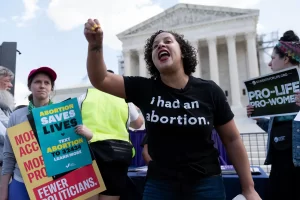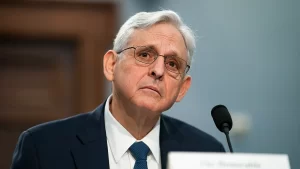
What can prevent suicide? A place to call home, a person to reach out to
For Samantha Alexander, Manhattan’s Fountain House has been her “earthly salvation.”
A few months ago, while living in a midtown homeless shelter, Alexander attempted suicide. Although she was assigned male at birth, she always knew she was female. She had struggled with chronic depression since childhood and had tried various medications to manage it.
Following her suicide attempt, a friend took her to Fountain House, a mental health nonprofit near her shelter. The organization helped her secure treatment and find a studio apartment downtown. Now, she spends almost every day at Fountain House, socializing with friends, discussing makeup and fashion, and volunteering with office work and cleaning.
Alexander exudes a strong sense of self. She wore a blue blazer, blue toenail polish, and jewel-studded blue fingernails when she spoke with USA TODAY. “It’s the community,” she said. “It’s everything, baby.”
Alexander’s experience is a testament to the kind of intervention experts believe can be transformative. Fountain House has attracted the attention of federal and local public health officials, who visited this week to learn about its strategies for combating the rising U.S. suicide rate.
In 2021 and 2022, the U.S. recorded more than 49,000 suicides, a historic high. Provisional data from 2023 suggests that the number of deaths by suicide, most involving firearms, has not declined.
The Biden administration aims to address this crisis by setting an ambitious goal: reducing the suicide rate by 20% by 2025. This effort is part of a National Strategy for Suicide Prevention, which seeks to identify at-risk populations and fill existing gaps. The plan emphasizes local, community-based suicide prevention programs that can provide early interventions and direct support from people with lived experience. Another critical goal is to reduce access to lethal means, such as firearms.
Dr. Mandy Cohen, director of the Centers for Disease Control and Prevention (CDC), joined the tour of Fountain House. She emphasized that mental health and the reduction of suicide and overdose deaths are priorities for public health officials. Mental health enjoys broad political support, and data is essential to promote the most effective methods, she previously told USA TODAY. Cohen has been traveling across the country to visit impactful mental health programs, including a health center in San Diego, a home-based mental health training program in Nashville, and Fountain House in New York City.
“In moments of suicidal crisis, people often feel isolated,” Cohen said during an interview at Fountain House. “Being part of a community can make a significant difference.”
At Fountain House, officials observed individuals with severe mental illness supporting and guiding each other. The program offers various activities, such as gardening and peer tutoring. A wall displays pennants from colleges attended by Fountain House participants.
The CDC plans to expand resources like the national 988 hotline in communities lacking programs like Fountain House, Cohen said. The 988 call system has faced challenges due to insufficient funding, limited awareness, and a scarcity of resources for people in crisis.
Fountain House’s clubhouses in Manhattan and the South Bronx serve about 2,000 people. Participation is voluntary but requires an application and a diagnosis of severe mental illness. The program is free and has been replicated nationwide.
Ken Zimmerman, CEO of Fountain House, highlighted the cost-saving benefits of the program. A 2017 New York University analysis found that the nonprofit reduced Medicaid expenses by 21% by decreasing emergency hospitalizations. About 40% of participants are unhoused when they enter the program, and nearly all find stable housing, Zimmerman said.
“It’s the antidote because it focuses on creating a place where everyone belongs and is needed,” he said. The goal is to welcome vulnerable individuals and “empower them to live their best lives.”
New York City Health Commissioner Ashwin Vasan, a former head of Fountain House, has developed a comprehensive mental health plan for the city to address severe mental illness, suicides, and overdoses. The plan includes expanding clubhouses like Fountain House and focusing on stabilization and prevention to avoid cycles of crises and repeated hospitalizations and arrests.
Vasan believes that community support can play a significant role in therapy.
Alexander volunteers as a secretary at Fountain House and donated half her wardrobe for an upcoming fashion show. She is known at the clubhouse for her makeup and fashion sense.
“Fountain House is my home away from home,” she said. “I feel safe here. I feel not judged here.”
After the officials departed, Alexander vacuumed while others chatted and studied at computers.
Alexander’s best friend in the program is Catherine Campbell, who has been attending the clubhouse for 12 years.
Campbell, 38, is studying applied mathematics at John Jay College of Criminal Justice, an opportunity that arose from a computer programming internship she discovered at Fountain House. Studying helps her manage her schizophrenia.
On Tuesday afternoon, Campbell planned to hand out peppermints at the clubhouse. She usually says, “Praise God,” when she distributes candies but first asks if people are comfortable with a religious blessing. Her goal is simply to ensure that people feel loved.






